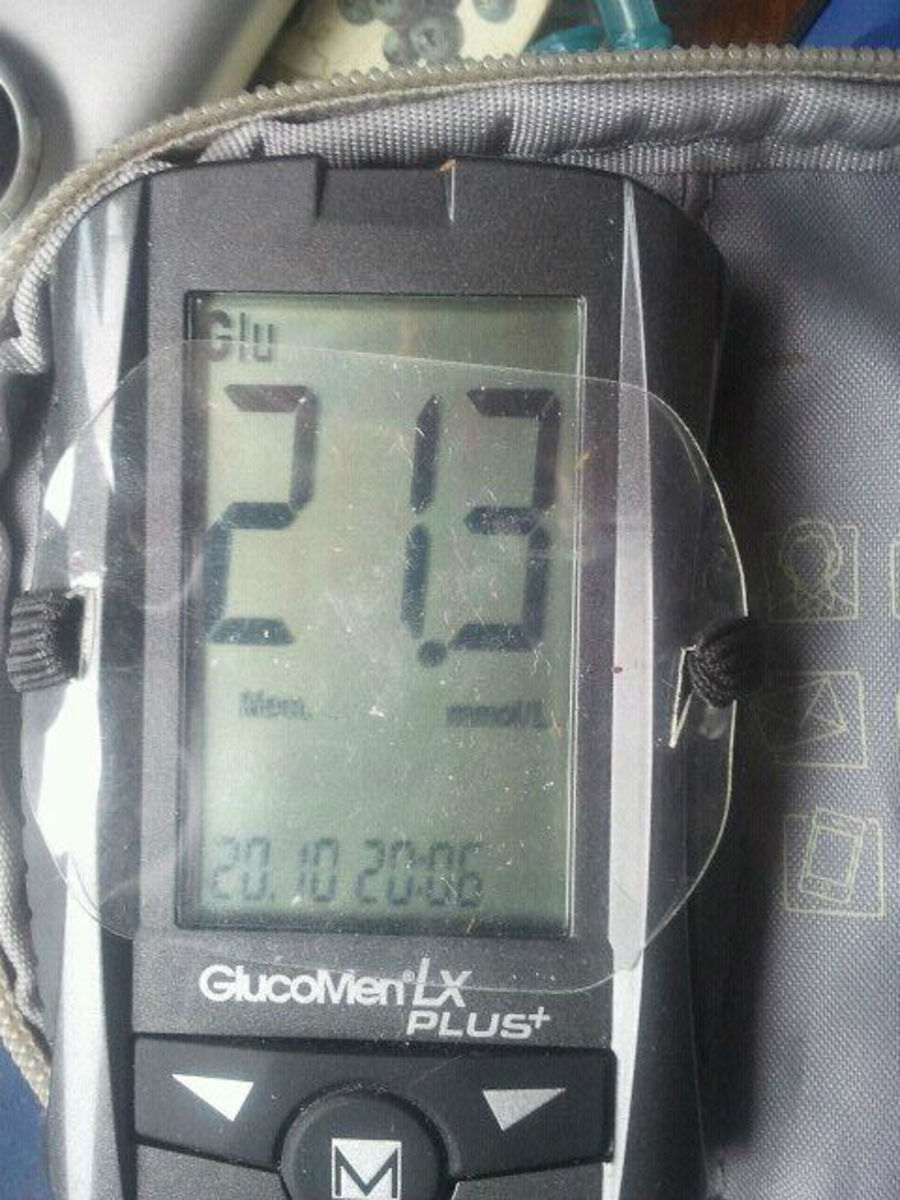The Ketogenic Diet--- A Truly Superior Experience
The Ketogenic Diet Basics
Some of the biggest problems of the world include metabolic diseases and obesity. As a matter of fact, millions of adults die every year from obesity-related causes. A variety of people around the world go through metabolic syndrome which can cause various problems of health. As a result, more and more health diets have emerged, some of which have no basis and may even be dangerous to your health. Remember to inform your doctor before embarking on a new health regimen especially if you are currently taking medication. Unlike many fad diets out there, the ketogenic diet is backed by science. It is extremely low in carbs, includes moderate protein and is high in fat. The body enters ketosis, which is a metabolic state that turns fat into ketones. What are ketones? These are brain energy molecules that the body supplies. Your brain and body become very efficient at burning ketones and fat after weeks on this diet. Instead of carbs, ketones and fat are used for fuel. Lower insulin levels are a result of the ketogenic diet. The main reason that this diet has so many benefits is the fact that it increases ketones and at the same time lowers the levels of your insulin in the process. On this diet, staple food includes cheese, eggs, butter, fish and meat. It also includes low carb vegetables, seeds, avocadoes, nuts and heavy cream. It eliminates almost all sources of carbohydrates including fruits, cereals, milk, sweets, potatoes, beans, rice and grains. Some vegetables that are high in carbohydrates are also eliminated. After being on keto for a while, you will truly get the hang of which foods are allowed and which are not on this diet. Your body becomes accustomed to running on fat stores and you get an even flow of energy throughout the day. Some even report a more balanced mood while on this diet. Gone are the days of highs and lows that carbohydrates bring. You also won’t feel a crash after a sugar high. As a matter of fact, you may start feeling better after a few days on this diet compared to how you have been feeling for years.
There are many health benefits offered by the ketogenic diet. This is a high-fat, low-carb diet that helps improve health and helps in weight loss. Diets that are ketogenic may even be beneficial against Alzheimer’s disease, epilepsy, cancer and diabetes.
The Basics
Basically, the ketogenic diet is a low carbohydrate, adequate protein, high fat diet that is used in medicine mainly for treating children’s refractory epilepsy that is difficult to control. The body is forced by the diet to burn fat instead of carbs. Usually, the food content of carbohydrates is turned into sugar and transported around the body especially for being the fuel for the function of the brain. The thing is, when you minimize dietary carbs, the liver then changes fat into ketone bodies and fatty acids. These replace glucose in the brain as a source of energy. Higher ketone body levels are known as the ketosis state, leading to a reduction in epileptic seizure frequency. Originally, this was a diet therapeutic for epilepsy in paediatrics and provides protein just enough for body repair and growth. Also, the calories are sufficient as well. To maintain the right height and age, the classic diet of ketogenic contains a fat to protein/carb content ratio of 4:1. This means not eating high carb foods and instead eating butter, cream and other high fat food like nuts.
A Superior Diet
When it comes to lowering disease risk factors and losing weight, the ketogenic diet is very effective. As a matter of fact, keto practitioners believe this diet is far superior to the usual diet that involves lowering fat intake. Compared to the standard low fat diet, keto dieters lose twice more weight. Also, there is an improvement in the HDL cholesterol and triglyceride levels. A key role may also be played by improved sensitivity to insulin, lowered levels of blood sugar and increased ketones.
The Keto Diet
Often just referred to as ‘keto,’ the ketogenic diet is a high-fat, low-carb diet sharing a lot of the same qualities as low-carb and Atkins diets. It has to do with lowering your intake of carbs drastically and instead, eating fat as a replacement. When you reduce carbs, your body gets into another state of metabolism called ketosis. Your body then becomes a fat-burning machine, turning fat into energy-supplying ketones in the liver which gives you brain energy as well. Diets that are ketogenic cause massive insulin and blood sugar reduction. There are numerous benefits to health along with an increase in ketones.
Good for Different Health Conditions
Studies show that various conditions of health can be treated by the keto diet. Parkinson’s disease, epilepsy, Alzheimer’s disease, cancer, acne, brain injuries, polycystic ovary syndrome and heart disease are just some. Symptoms of Parkinson’s disease are improved on the keto diet. Massive seizure reduction in children with epilepsy comes with the keto diet. Alzheimer’s symptoms are reduced and the progression of the disease is slowed down. Slow tumor growth and cancer treatment is being done with the keto diet. Risk factors like blood sugar, blood pressure, HDL levels and body fat are improved by the ketogenic diet. Acne is improved with eating less processed food and sugar. Brain injuries are improved and concussions are reduced on this diet. Polycystic ovary syndrome is improved by the reduction in levels of insulin in this diet.
Good for Prediabetes and Diabetes
The characteristics of diabetes include impaired insulin function, high blood sugar and changes in metabolism. The keto diet is able to help you with fat loss which is linked to the metabolic syndrome, type two diabetes and prediabetes. Insulin sensitivity even gets improved by up to seventy-five per cent on the keto diet. Patients on the diet report being able to stop all medications for diabetes type 2. There is a link between type 2 diabetes and weight and the keto diet is able to do wonders in this arena. Make sure to inform your health care practitioner if you are planning to go on a keto diet.
Ketosis
In a ketogenic diet, small molecules of fuels called ketones are produced by the body. This is an alternate bodily fuel used when there is a short supply of blood sugar. When you eat very little carbs, your body produces ketones from fat in the liver. These are used throughout the body as fuel, including for the brain. Each day, the brain is a hungry organ that consumes a lot. It cannot directly run out of fat. It can only run on ketones and glucose. One a diet which is ketogenic, your entire body goes from running on carbs to running on fat. Fat burning dramatically increases and levels of insulin become quite low. This makes it very easy to access stores of fat and get these burned. This is great obviously if you are attempting weight loss. There are other benefits which are less obvious, such as a steady supply of energy and less hunger. When ketones are produces by the body, this is the time it is in a ketosis state. Fasting is the fastest way to get to ketosis but of course, it is not possible to fast forever.
On the other hand, a ketogenic diet can be indefinitely eaten and also puts the body into ketosis. It has all the fasting benefits including loss of weight without having to go through fasting.
Improved Mental Focus
The result of ketosis is a steady fuel flow to your brain. You get to avoid blood sugar swings on a ketogenic diet. Often, this results in the experience of improved concentration and an increase in focus. Specifically, a lot of people use this type of diet for an increase in performance mentally. What is interesting is that there is a notion among many people that they think the brain can only function when a lot of carbs are eaten. The fact is that this is only true when you don’t have an available supply of ketones. After your body adapts to keto after a week, your brain and body can then easily run on ketones.
Physical Endurance is Increased
Your physical endurance can be increased vastly in a ketogenic diet. You get access constantly to energy from your stores of fat. The stored carbohydrate supply of your body only lasts for a few hours of intense exercise. However, your storage of fat can carry energy enough to last easily for months or weeks. When you have developed adaptation to primarily burning carbs, you can’t easily access your storage of fat. What happens when you are adapted to burning carbs is that you need to keep eating while you exercise, before, during and after. On the other hand, a keto diet enables you to burn fat stores just like the energizer bunny, twenty four hours seven days a week. Whether you are focused on achieving a goal or trying to stay focused, a ketogenic diet will enable you to keep on going.
Signs You Are In Ketosis
How do you know whether or not your body has reached a state of ketosis? You can of course buy ketosis strips at the drug store which test for breath samples, blood or urine. There are also telling symptoms that will tell you that your body is indeed in ketosis.
- Keto breath- if you feel like your breath smells like acetone, this is due to a ketone body escaping through your breath. It smells like nail polish remover and causes your breath to smell fruity. This smell can also escape when working out and from sweat. It is usually temporary.
- Urinating more- acetoacetate is another ketone body that can end up in the urine. This is why you can actually test your urine for ketones. The main cause of increased thirst is increased urination.
- Increases thirst and dry mouth. Unless you get enough electrolytes and drink enough water, you will go through dry mouth Drink a couple of cups of bouillon soup per day and as much water as you want.
- Increased energy- keto flu is the term used for the few days of feeling tired. A lot of people go through an energy level increase. You will lack brain fog and think more clearly. You might even feel a bit euphoric.
- Hunger is reduced- many people feel less hungry while on the ketogenic diet. The reason behind this may be that the body is able to access fuel all the time through fat storage. Just eating once or two times a day is okay for some people that are going through this diet. This not only speeds up weight loss, it also saves money and time.
What to Eat on a Keto Diet
When trying to achieve ketosis, it is okay to eat saturated fats, high fat salad dressing, coconut oil and other fat. It is also okay to eat sweeteners such as monk fruit, erythritol and stevia. Berries and avocadoes are also allowed in this diet including blackberries and raspberries as well as other impact low glycemic berries. You can also eat butter, high fat cream, hard cheeses and high fat dairy. Above the ground vegetables like cauliflower and broccoli are also okay. Kale, spinach and other leafy greens are allowed. Eggs, poultry, lamb, beef, fish and other meat are allowed on a ketogenic diet.
What Not to Eat
On a ketogenic diet, it is not a good idea to eat high carbohydrate food groups that include yams, potatoes and other tubers. You should also avoid oranges, bananas, apples and other fruits. Maple syrup, agave, honey and other sugar should also be avoided. Cereal, rice, corn and wheat are high carb food that you should not eat on a ketogenic diet.








